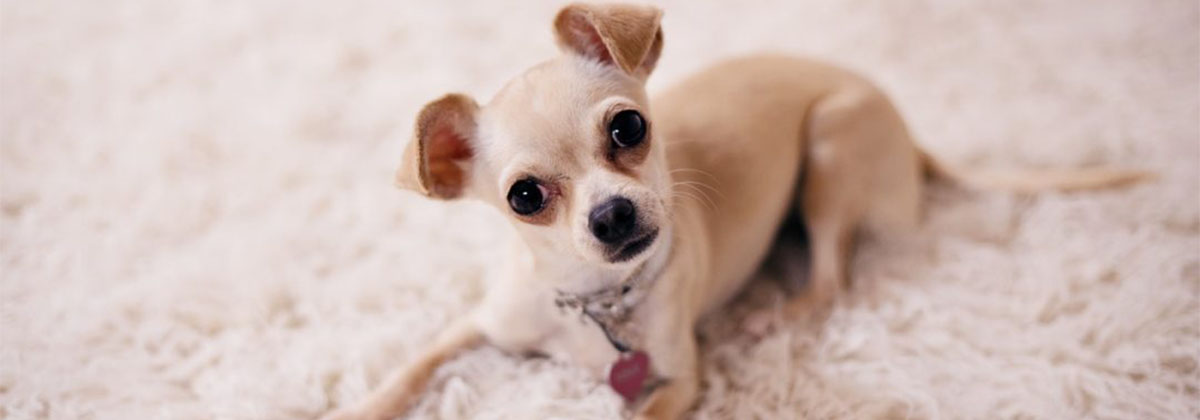05 Dec Different Facts About Chihuahua (Part 1)
The chihuahua is the smallest dog breed globally and is a puppet dog. His attractiveness and popularity are his small size, prominent personality, variety of colours, and types of hair cover. Chihuahuas also can compete in sports competitions and command dogs because of their remarkable intelligence. Today, this dog is trendy and is ranked 11th among 155 dog breeds globally. In this article, we will talk about the history of these dogs, their appearance, personality, maintenance, cleaning tips, and the different types they have.
Chihuahua coat type
Chihuahuas are usually seen with two types of coat: long hair and straight or short hair. Short hair samples have softer hairs. Long hair has soft, slightly curly hair that isn’t easily visible on the skin’s surface and doesn’t require special hair care; Regular brushing of their coat is sufficient. Their hair growth is a bit slow, and if you trim their hair, it will take a long time to grow back like before.
The lifespan of a Chihuahua
Chihuahuas that weigh less than 6 pounds have a shorter lifespan. If you keep your dog in good condition, he can live up to 20 years. Their average lifespan is between 14 and 18 years.
Behavioural characteristics
Relationship with children
Chihuahuas have a strong tendency to attack and bite. Therefore, they won’t be suitable for families with small children. Although a Chihuahua is child-friendly, she may fall and get hurt by your child and be unable to defend himself because of her small size. Therefore, he will be more suitable for families with small children. Even if you don’t have children, you should introduce your dog to children; this is especially important at an early age; otherwise, they may be afraid of them later.
Relationship with other dogs
These dogs don’t get along well with their breeds. He usually chases other dogs, and if he encounters another aggressive dog, nothing pleasant will happen. Note that this breed shouldn’t be left alone in the yard, as they are very vulnerable and can be attacked and harassed by birds of prey or larger dogs. They’re also considered sensitive dogs due to their small size and can be injured during play.
Common diseases
Most Chihuahuas are small and healthy dogs, but some genetic problems and other important diseases include pulmonary stenosis, patellar dislocation, heart defect, tracheostomy, fontanelle, chills, hydrocephalus, hypoglycemia that can affect these dogs. A regular dog vaccination program and genetic health screening should be performed on them to prevent these problems. Here we will explain two critical problems: dental problems and periodontal diseases.
Dental problems
Chihuahuas often don’t have enough space for their teeth to grow properly due to the small size of their mouths and have problems with their teeth. Therefore it’s essential to see a veterinarian regularly; Dental care is necessary for this dog and may require some dental intervention, such as extracting some teeth to fit the rest of the teeth.
Gum problems, such as plaque, are common in this dog breed. If you have a Chihuahua, it’s vital to take care and brush his teeth daily to remove plaque and tartar. If you don’t take proper care of your dog, they will develop gum disease (such as gingivitis), which can lead to premature tooth loss.
In addition to brushing your teeth daily, you should provide some unique chewing toys that will help remove tooth decay. Also, avoid excessive snacks or low-quality foods rich in starch and sugar for him.
Periodontal diseases
If dental plaque is removed late and has accumulated along and under the gums, it can cause periodontal disease. Finally, you should remove these masses by pulling the teeth and opening the space between the teeth and gums. These areas are very conducive to the growth of bacteria, and in this way, your dog will be at risk of infection.
If a dog’s gums reach this stage and develop periodontal disease, the damage to the gums and teeth can lead to loose and decayed teeth. This condition often causes the dog to ache.
Small breeds in dogs (e.g., chihuahua, poodle, pomeranian, etc.) are more susceptible to periodontal disease due to the small size of their mouth. Usually, the number of teeth makes it difficult to keep them too clean, and food particles.




Sorry, the comment form is closed at this time.